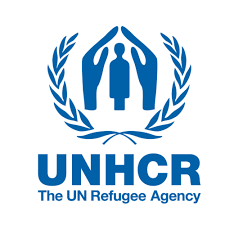
The project University Corridors for Refugees UNICORE 5.0 is promoted by Italian universities with the support of UNHCR, Italian Ministry of Foreign Affairs and International Cooperation, Caritas Italiana, Diaconia Valdese, Centro Astalli and other partners. It aims to increase opportunities for refugees currently residing in Kenya, Niger, Nigeria, South Africa, Uganda, Zambia and Zimbabwe to continue their higher education in Italy.
The initiative, born in 2019 to allow refugee students in Ethiopia to arrive in Italy with a regular and safe path to continue their studies, has experienced the increasing participation of Italian universities over the years. Since 2021, with resolution no. 281 of 10 December 2020 of the Academic Senate, Sapienza has also joined the initiative by providing 2 scholarships for two refugee students in Ethiopia. In 2022, with resolution no. 53/22 of 8 March 2022, the Academic Senate allowed Sapienza to join UNICORE 4.0 in order to receive four refugee students in Cameroon, Niger, Nigeria, Malawi, Mozambique, South Africa, Zambia, and Zimbabwe.
The project stands out for its inclusive dimension, thanks above all to a wide network of territorial partners who support students in entering academic life and integrating into the local social fabric. In particular, Caritas, Diaconia Valdese and Centro Astalli actively participate in the project, as well as a large number of other international and local actors.
About United Nations High Commissioner for Refugees (UNHCR)
UNHCR, the UN Refugee Agency, is a global organization dedicated to saving lives, protecting rights and building a better future for refugees, forcibly displaced communities and stateless people.

UNHCR University Corridors For Refugees Project
| Application Deadline | 19 May 2023 |
| Country to study | Italy, Kenya, Niger, Nigeria, South Africa, Uganda, Zambia, Zimbabwe |
| Type | Postgraduate |
| Sponsor | United Nations High Commissioner for Refugees (UNHCR) |
| Gender | Men and Women |
Aim and Benefits of UNHCR University Corridors For Refugees Project
The benefits enjoyed by students arriving in Italy thanks to this initiative are many and range from the monthly scholarship provided by Sapienza to orientation and academic tutoring activities, to free local transport and accommodation, teaching material, computers, telephones, SIM cards, legal assistance, listening spaces, pocket money, etc.
Requirements for UNHCR University Corridors For Refugees Project Qualification
The requirements for applying are described in the calls that each of the participating universities publishes on the basis of an agreed format. Each university offers a certain number of study courses from its own academic offer.
Application is open exclusively to candidates who:
- Are residing in Kenya, Niger, Nigeria, South Africa, Uganda, Zambia and Zimbabwe and have been recognized refugee status in these countries in collaboration with UNHCR
- Hold a qualification valid for admission to the chosen Second Cycle Degree Programme;
- Have a Grade Point Average (GPA) of at least 3.0 according to the country of graduation tertiary education grading system or equivalent according to the comparable table issued by the Italian Ministry of Education;
- Hold a degree obtained in or after 2018 and no later than May 19st 2023 (please note that some universities do not apply a time limit for graduation, please refer to individual call for applications);
- Meet the specific admission requirements of the Second cycle degree programme;
- Have never before been enrolled in a degree program at any of the Partner Universities.
- Proficiency in the English language is required.
Interview date, Process and Venue for UNHCR University Corridors For Refugees Project
The selection process for admission will be carried out by and is the sole responsibility of the individual universities. To learn more about the selection criteria please also visit the dedicated page at this link.
Students will be selected on the basis of merit.
The evaluation will be carried out by Committees of Experts nominated by each university individually.
The participating universities will each identify a Committee of Experts to conduct the selection process, which will be divided into two steps:
Step 1: Evaluation of the documentation. The Committee of Experts will evaluate the documentation according to the following criteria:
- Academic background and GPA (score: 0-20);
- Evaluation of CV: professional experience and personal skills (score: 0-10);
- Coherence between previous studies and selected Second Cycle Degree programme (score: 0-10);
Candidates receiving a score of less than 25 will not be admitted to step 2 of the selection process.
Candidates admitted to Step 2 will be notified by email.
Step 2: On-line interview. Candidates admitted to step 2 will be interviewed by the Committee of Experts, who will evaluate their technical skills, knowledge of the subject and level of English. Interviews will be graded on a scale of 40 points.
Interviews will be held on-line.
Candidates will be notified by email about the date and time of the interview.
Candidates are requested to present themselves for interview with the Ration Card Number or the Refugee Identity Card used during the on-line application. A third party must be present at the beginning of the interview to identify the candidate.
Participation in University Corridors, including the application process, is free. If you know anyone asking or offering money in connection with this project you should immediately contact UNHCR.
Documents Required for Application
Students are required to submit the following mandatory documentation:
- Proof of refugee registration issued by national authorities in collaboration with UNHCR;
- A certificate confirming the qualification required for admission to the chosen degree programme;
- Transcripts of exams passed and relative grades;
- A reference letter is required by some universities;
- Any relevant and additional document required by the specific programmes chosen.
Presenting any fraudulent school certificates or university diplomas is a crime. All the documents that you submit will be carefully checked by experts. Should you present fraudulent documents there will be serious consequences including your disqualification from this and other opportunities. UNHCR may also report the incident to the police authorities.
Application Deadline
May 19, 2023How to Apply
Please note that the call for applications of the University of Padua will remain open from 3 April to 2 May
For more details, visit UNHCR website
